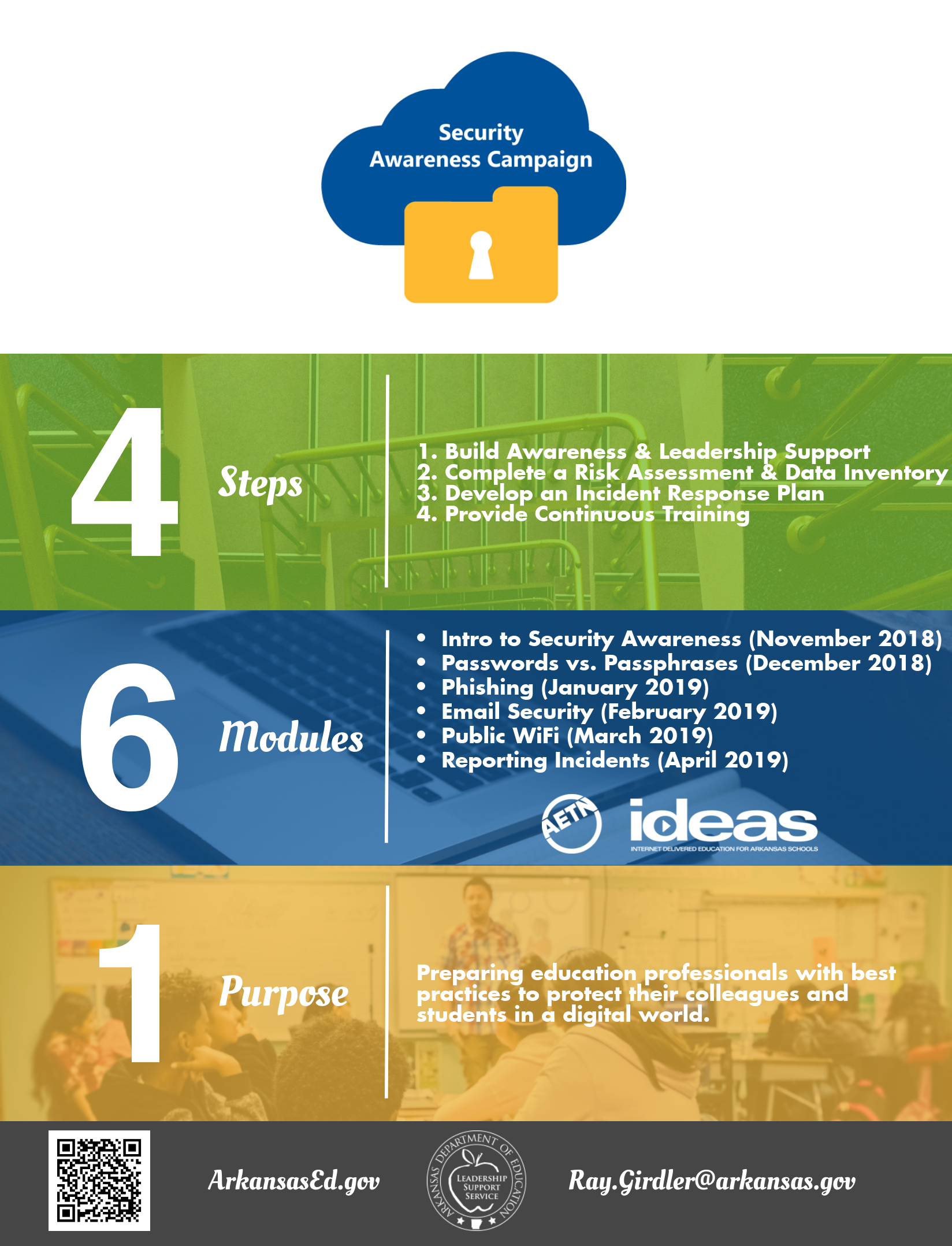Arkansas department of education – the k-12 cybersecurity resource center
Hey y'all! Today we're talkin' about somethin' super important – Cyber Security. It's crucial to keep ourselves protected online, so listen up. We've got a couple of resources here that we wanna share with you, and trust us, they're gonna be a game-changer!
Cyber Security - Never Share Your Password

First up, we have this awesome printable A4 size poster. It's a friendly reminder that we should never share our passwords with anyone – no exceptions! We all know that our passwords are like keys to our online lives, right? So keep 'em safe and secure, my friends.
Arkansas Department of Education – The K-12 Cybersecurity Resource Center

Next on the list is this informational flyer from the Arkansas Department of Education. It's called "The K-12 Cybersecurity Resource Center," and man, it's packed with some solid advice. This flyer gives educators and students the knowledge they need to stay protected in the digital world. Shout out to Arkansas for lookin' out for their peeps!
Now, let's get down to business and talk about why Cyber Security should matter to each and every one of us. It doesn't matter what color our skin is – we're all at risk when it comes to online threats. Identity theft, fraud, and invasions of privacy can happen to anyone. That's why it's so important to educate ourselves and take the necessary steps to protect our online presence.
Remember that cybercriminals don't discriminate. They don't care about the color of your skin or where you come from. They're out to exploit vulnerabilities and make a quick buck. So, let's not make it easy for 'em!
Here are a few essential tips to help keep your online presence secure:
Tips for Cyber Security:
1. Create Strong Passwords: Use a combination of letters (both uppercase and lowercase), numbers, and special characters. Avoid using easily guessable passwords like birthdays or the word "password" itself.
2. Enable Two-Factor Authentication: Add an extra layer of security by enabling two-factor authentication whenever possible. This way, even if someone manages to get hold of your password, they won't be able to access your accounts without the additional verification.
3. Be Cautious of Phishing Attempts: Don't click on suspicious links or download attachments from unknown sources. Phishing emails are designed to trick you into revealing sensitive information or downloading malware onto your device.
4. Keep Your Software Updated: Regularly update your operating system, apps, and antivirus software to ensure that you have the latest security patches. These updates often contain fixes for known vulnerabilities that cybercriminals may try to exploit.
5. Use Secure Wi-Fi Networks: Avoid using public Wi-Fi networks for sensitive activities like online banking or accessing personal accounts. If you need to use public Wi-Fi, consider using a VPN (Virtual Private Network) to encrypt your connection and protect your data.
By following these tips, you're taking proactive steps to safeguard your online presence. Keep in mind that Cyber Security is an ongoing process. Stay informed about the latest threats and continue educating yourself to stay one step ahead!
Alright, y'all, that's a wrap! We sincerely hope you find these resources helpful and take the necessary precautions to protect yourself online. Remember, Cyber Security is everyone's responsibility, and together we can create a safer digital world for all. Stay safe out there, y'all!